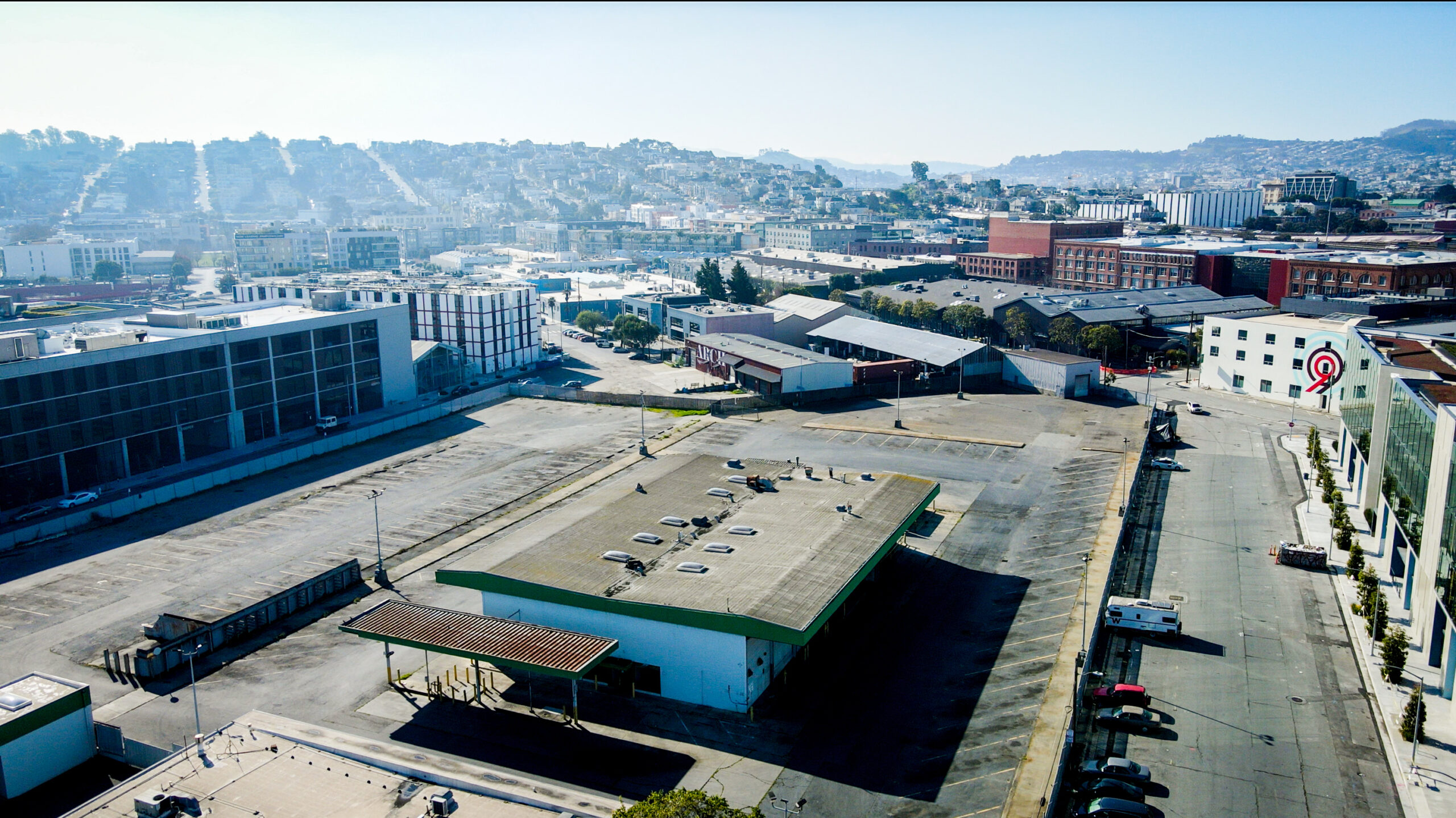SF Board of Supervisors President Shamann Walton introduced legislation Tuesday that would impose temporary restrictions on new parcel delivery services and likely delay approval of a proposed Amazon warehouse in his district, according to a draft of the resolution obtained by The Standard.
The legislation would impose interim zoning controls for 18 months and require conditional use authorization for new parcel delivery services, including the large delivery operation planned by Amazon for a 7th St. site it acquired from trash-hauler Recology in December of 2020.
Critics of the project, including neighbors and labor unions who don’t like Amazon’s anti-union policies, say the warehouse could worsen pollution, traffic and quality of life for residents while offering only low-paying jobs. The city entered into a memorandum of understanding with Amazon last fall governing negotiations on a development agreement, The Standard reported last month.
Doug Bloch, the political director for Teamsters Joint Council 7, said Walton’s measure has unanimous support from the Board of Supervisors and could provide a model for how urban centers think through last-mile delivery centers in the future.
The Teamsters union has 1,400 members that work for delivery giant UPS in the city, including at a facility down the street from the planned Amazon warehouse.
“Those drivers have an average wage of $40 an hour with fully paid family health benefits, a pension, sick days and vacation days,” Bloch said. “An Amazon driver, if this goes through, starts at $21 an hour, with a substandard health plan, no pension and very few of those benefits.”
Amazon did not immediately respond to a request for comment.
Bloch said a number of jurisdictions in the Bay Area, including Contra Costa County, Menlo Park and Hayward had imposed moratoriums or specific regulation of last-mile delivery centers.
“If dozens of these delivery stations move into every city Bay Area, what does that do to traffic patterns, pollution or properties where housing was being built?” Bloch said. “This legislation would provide a pause to see if our zoning laws need to catch up to what’s happening.”
Jim Araby, director of strategic campaigns for United Food & Commercial Workers Local 5, said the pandemic accelerated residents’ reliance on quick turnaround delivery, but cities like San Francisco have found themselves on the back foot on how to regulate these new types of industrial use.
“Last-mile delivery stations are fairly new in the land-use planning rules and there aren’t the tools to effectively evaluate those projects in many cases,” Araby said. “We’re not against Amazon attempting to enter the city in a big way, but if they do they have to meet San Francisco and community standards.”
Amazon’s planned warehouse–unlike a housing development that had previously been considered for the site–would meet current land-use guidelines, absent new zoning restrictions. Walton’s resolution is aimed at giving the city more leverage in negotiating concessions from the company.
While the property is zoned for light industrial use, Araby said the volume of vehicles and trucks entering and exiting an Amazon warehouse of this type would be much higher than what residents may have previously come to expect.
“If you have big trucks and smaller vans going in and out of the facility all day, that’s a very different thing than a garbage truck coming in and out once a day,” Araby said. “It’s not extortion if you want to have community input on something coming into your neighborhood.”
Walton’s proposal says the zoning restrictions would allow the city to properly study the “rapidly evolving” industry and allow for orderly development of package delivery service-type uses. The measure also states the restrictions are meant to allow San Francisco to consider ways to promote economic opportunities for unskilled and semi-skilled workers and balance various types of industrial uses.
The legislation does allow for temporary parcel delivery services for a single period of up to 60 days within a 12-month period.
“With this legislation, San Francisco is taking a monumental step toward allowing communities to set the standards and determine if they want these kinds of facilities to be built in their cities,” Supervisor Walton said in a statement. “I’m proud to work with The International Brotherhood of Teamsters, the United Food and Commercial Workers and the San Francisco Southeast Alliance to get this passed, and set a precedent that will encourage major cities to engage in an evaluation process to determine the impact these developments have on workers, residents and the environment.”
Amazon already operates a number of smaller warehouses and delivery centers in San Francisco, including a warehouse at 435 23rd St. and another at 749 Toland St. The company purchased the six-acre parcel at 900 7th St. from Recology for $200 million in late 2020.
Recology had owned the property since 1970, using it mainly for garbage truck parking and storage. Prior to selling the property to Amazon, the waste management company pitched various uses on the site, including offices and housing.
